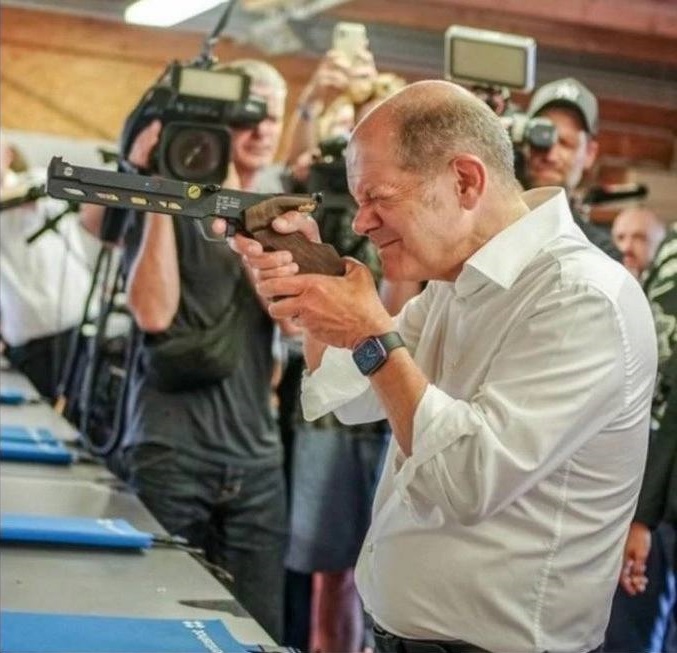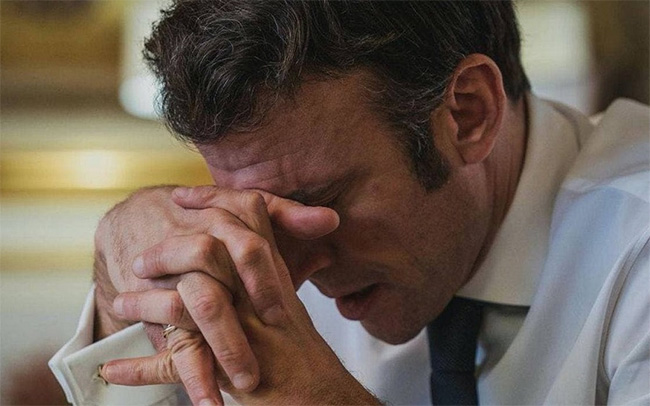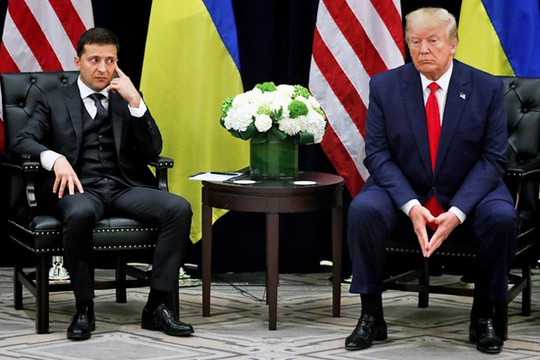Historical photo – US President Trump in negotiations with Ukrainian President Zelensky.
“The number one reason Republicans will not come out in favor of a supplemental for Ukraine is they don’t want to offend candidate Trump and his supporters,” Democratic Rep. Mike Quigley said on CNN Max. “He’s already made it clear what he would do — the war would be over on his first day, which means Putin gets to keep the borders he has, if not more.”
No matter what happens in American politics this year, US and Western intelligence officials believe that Russia’s war in Ukraine is likely to go on for much longer.
Assessments vary, but virtually all of them assume that there will be at least two more years of fighting, according to multiple sources familiar with the intelligence — long enough to outlast Biden’s first term. Privately, some US and Western officials say there could be as many as five more years of fighting.
“Aside from there being a desperate need, getting as much aid in before January 2025 is on the minds of a lot of folks I’ve spoken to,” said one US official. “Not only is it important that the monies get appropriated, but that they get disbursed before the election as any FY24 funds still waiting to be spent can get blocked by Trump.”
Said one source familiar with Western intelligence, “Basically everything depends on Biden getting reelected, doesn’t it?”….
At one point last fall, some more hawkish members of Congress privately estimated that Ukraine would need as much as $100 billion to get through 2024, the congressional aide said. The White House ultimately settled on a $61 billion request for 2024, around $7 billion more than it requested for Ukrainian military aid for 2023.
A congressional aide familiar with the discussions said that the longer negotiations over the supplemental drag on, the less likely it is to be approved.
In the near term, Ukraine may be able to hang on, albeit in a stalemate, without US support, a Western intelligence source said. But that would still be a significant loss not only for Ukraine, but also for the US’ standing in the world, this person said.
 Is Chancellor Scholz preparing for war?
Is Chancellor Scholz preparing for war?
As Trump’s return looms, Europe shivers at prospect of facing Putin alone, notes POLITICO.
Europe’s greatest security challenge since the Cold War — the chilling prospect of needing to fund and arm Ukraine without U.S. support — will expose political fault lines at a memorial service Monday that was meant to symbolize EU solidarity.
Donald Trump’s landslide victory in the Iowa caucus earlier this week has only upped the stakes, making it only too credible that Europe will be left to forge its own path against Russia if he ultimately retakes the presidency.
Berlin is smarting. Germany is second only to the U.S. in providing military aid to Ukraine, giving €17.1 billion in assistance through October of last year, according to a tally by the Kiel Institute for the World Economy. France, in comparison, has only contributed €0.5 billion, Italy €0.7 billion and Spain €0.3 billion.
As ever, Macron was quick to respond to the Iowa result with his traditional rhetoric on Europe going it alone — "strategic autonomy," as he has called it.
“It shows Europe has to be lucid about the U.S,” he told reporters the day after the vote. "That is why we need a stronger Europe, that can protect itself and that doesn’t depend on others.”
Perhaps conscious of the growing frustration about Paris not backing up that talk up with action, Macron announced the delivery of 40 SCALP-EG long-range missiles and "several hundred" bombs to Ukraine in the coming weeks.
Germany on the other hand was seen as dithering and reluctant, unable or unwilling to give Ukraine the weapons it needed to defend itself; it took overwhelming international pressure, for instance, to get Scholz to authorize the delivery of German-made Leopard 2 tanks to Ukraine. Time after time, German officials said they did not want to send heavy arms until the Americans did so. That luxury of waiting for a nod from Washington will probably disappear if Trump wins.
The key question European officials are asking is whether Europe is capable of replacing American hard power, particularly given its weak performance in ramping up industrial production to try to supply Ukraine's needs. Britain and France say they are entering security agreements with Ukraine, but it's unclear how much that amounts to without U.S. support.
François Heisbourg, a senior adviser for Europe at the International Institute for Strategic Studies, told POLITICO the departure of the U.S. was a potential historical inflection point.
Heisbourg argued Germany’s ranking as the second biggest military donor behind the U.S. is somewhat misleading. Germany, he said, had kept much of its Cold War stock, and provided Ukraine with many old weapons.
"Where there's a real difference is that the French and Brits are providing weapons that are strategically important and useful, while the Germans are not,” he said. “The Germans are doing box-ticking.”
Germany has indeed continued to refuse to provide Taurus long-range precision missiles to Ukraine out of fear they could be used to strike Russian territory.
 French President Macron is in despair…
French President Macron is in despair…
Leaders are now beginning to wake up to the fact that a year from now, former U.S. President Donald Trump could actually be returning to the White House, writes ‘The Foreign Affairs’.
Accordingly, some foreign governments are increasingly factoring into their relationship with the United States what may come to be known as the “Trump put” — delaying choices in the expectation that they will be able to negotiate better deals with Washington a year from now because Trump will effectively establish a floor on how bad things can get for them. Others, by contrast, are beginning to search for what might be called a “Trump hedge” — analyzing the ways in which his return will likely leave them with worse options and preparing accordingly.
Russian President Vladimir Putin’s calculations in his war against Ukraine provide a vivid example of the Trump put. Putin knows that Trump has promised to end the war “in one day.” In Trump’s words: “I would tell [Ukrainian President Volodymyr] Zelensky, no more [aid]. You got to make a deal.” Facing a good chance that a year from now, Trump will offer terms much more advantageous for Russia than anything U.S. President Joe Biden would offer or Zelensky would agree to today, Putin will wait.
Ukraine’s allies in Europe, by contrast, must consider a Trump hedge. But as reports of polls showing Trump besting Biden are beginning to sink in, there is a growing fear. Germans, in particular, remember former Chancellor Angela Merkel’s conclusion from her painful encounters with Trump. As she described it, “We must fight for our future on our own.”
Today, Trump’s campaign website calls for “fundamentally reevaluating NATO’s purpose and NATO’s mission.” When considering how many tanks or artillery shells to send to Ukraine, some Europeans are now pausing to ask whether they might need those arms for their own defense were Trump to be elected in November.
A second Trump term promises a new world trading order — or disorder.
In the current campaign, Trump calls himself “Tariff Man.” He is promising to impose a ten percent universal tariff on imports from all countries and to match countries that levy higher tariffs on American goods, promising “an eye for an eye, a tariff for a tariff.” The cooperation pact with Asia-Pacific countries negotiated by the Biden administration — the Indo-Pacific Economic Framework for Prosperity — will, Trump says, be “dead on day one.”
Historically, there have been eras when differences between Democrats and Republicans on major foreign policy issues were so modest that it could be said that “politics stops at the water’s edge.” This decade, however, is not one of them, stresses ‘The Foreign Affairs’.
read more in our Telegram-channel https://t.me/The_International_Affairs

 11:57 23.01.2024 •
11:57 23.01.2024 •























